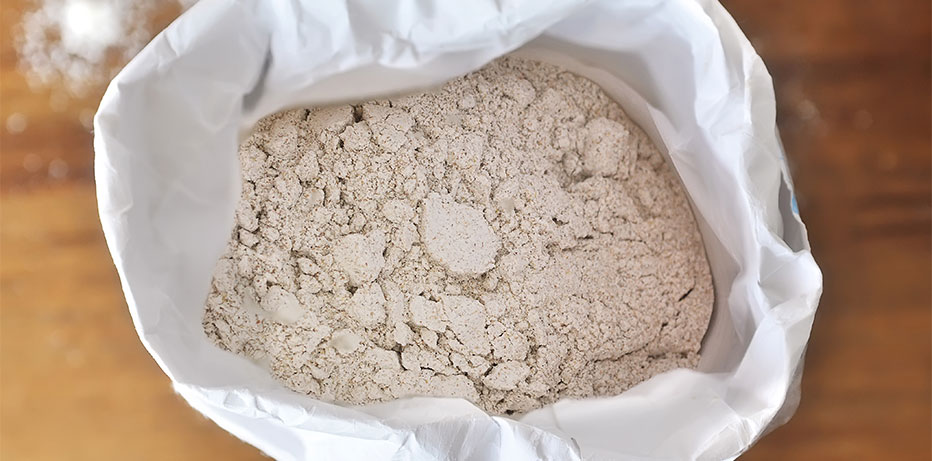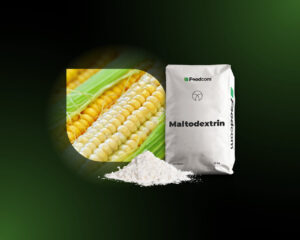Summary
Table of contents
- Industrial sugars are organic compounds found in plants and can be manufactured artificially through various methods.
- They are used in the food industry to alter the physical properties of products, enhance flavor and sweetness, and improve texture.
- In the feed industry, sugars provide easily digestible energy for livestock, act as anti-caking and bulking agents, and support animal performance and immune system strength.
Read our guide to industrial sugars intended for food and feed use. Discover a wide range of products, see how they are obtained for commercial purposes, and learn about their properties and characteristics.
Sugars are organic compounds naturally occurring in plants and constituting a major energy source for living organisms. Sugars, also called saccharides in chemical terms, often occur naturally but can be manufactured artificially as well by a range of industrial methods such as starch hydrolysis, enzymatic reactions, or fermentation among others. The currently available portfolio of the industrial sugars on the market is quite extensive and includes products intended for both food and non-food usage. Take a look at some of the most common industrial sugars and their characteristics.
In the food industry, saccharides are commonly used due to their capacity of altering the physical properties of the product. Depending on the type, they can thicken, emulsify, foam, or stabilize the product as well as form gels, films, or membranes. They improve the organoleptic properties of the final product by introducing the desired texture and enhancing the mouthfeel. Some sugars are also used for enhancing the sweetness of the product and balancing the flavor.
In the feed industry, sugars provide an easily digestible energy source for livestock. They are also used as anti-caking and bulking agents in forage premixes. Saccharides are also responsible for maintaining animal performance, delivering prebiotics, and acting as antioxidants. Moreover, they play a role in maintaining the strength of the immune system, improving growth, and supporting fertility processes.
Maltodextrin is produced through enzymatic hydrolysis of starch from plants, most commonly from corn but also from rice and wheat. The final product is a loose, white powder of a high solubility rate.
In the food industry, maltodextrin is used for its wide range of property-altering abilities. It ensures the smoothness in canned food items and improves texture in goods such as meats, baked goods, and confectionery. It also acts as an emulsifier in ice cream and beverages and improves the viscosity of yogurts and juices. They are widely applied in sports nutrition and products suitable for diabetics due to their lower glycemic index. Maltodextrin also enhances the nutritional value of infant formula goods.
In the animal feed sector, maltodextrin is used as a low-cost alternative for other carbohydrates to provide an energy source, especially to weaning pigs and lactating cows. It may also reduce the symptoms of dehydration and stress, accelerate nutrient absorption, and enhance feed efficiency. Maltodextrin also improves the texture, pigment, and flavor of the feed.
Dextrose monohydrate, also known as d-glucose, is a naturally occurring monosaccharide found in plants and fruits. The ingredient is produced commercially by enzymatic hydrolysis of starch from plants such as maize, rice, potato, or wheat. Living organisms absorb dextrose monohydrate directly during the digestion process and use it as an energy source. Dextrose is also involved in protein production and lipid metabolism.
In the food industry, dextrose monohydrate is used to obtain desired physical properties of the final product. It improves viscosity, increases sweetness, and serves as a flavor enhancer. Dextrose has a weaker sweetening power than other sugars such as sucrose, but it has a higher water solubility rate. The product is widely used in the confectionery sector as an ingredient in candies, ice cream, lollipops as well as in a range of beverages. It is also applied in the bakery sector due to its role in the Maillard reaction in the preparation of buns, bread, and pastries. Moreover, dextrose monohydrate is used in the pharmaceutical sector as an ingredient of salts and IV fluids to help the patients restore glucose levels, nutrients, electrolytes, and supply calories.
In the feed industry, dextrose monohydrate is used as a nutritional supplement and energy source in various forage mixes. It also enhances the flavor and palatability of the final product.
Xanthan gum is most commonly produced through the fermentation of Xanthomonas campestris bacteria. The product is characterized by high solubility and viscosity rates.
In the food industry, xanthan gum is widely used due to its gelling, stabilizing, emulsifying, and thickening properties. The product is found in a range of foodstuffs such as confectionery goods, ice cream, salad dressings, desserts, puddings, and beverages.
In the feed industry, xanthan gum is used as a binding agent in pet food items.
Chitin is a polysaccharide resembling cellulose in its structure and having a similar function to keratin. It is obtained from the shells of the crustaceans through acid hydrolysis. Chitin has a range of functions within the organism including hydration, tissue protection, and acting as an antioxidant.
In the food sector, chitin is used as an emulsifier, binder, taste enhancer, thickener, and stabilizing agent.
In the animal feed industry, chitin is considered a nutritional additive improving animal growth and carcass quality.
Agar is a polysaccharide obtained from seaweeds. It is non-digestible and therefore its usage is limited to modify the physical properties of the product rather than its taste.
In the food industry, agar is widely used due to its emulsifying, gelling, thickening, and stabilizing properties. It is a vegan-friendly substitute for gelatin. The product is applied in the production of baked goods, confectionery items, dressings, sauces, and meat products. Agar also finds its use in vegetarian foodstuffs and dietary items.
Maltose, or malt sugar, is a disaccharide produced through the hydrolysis of fermented grains of starch-rich plants. Maltose is characterized by low hygroscopicity and crystallization tendency. The product is used to prolong the shelf life of the products and maintain their color.
In the food industry, maltose is used primarily in confectionery goods, chocolates, jellies, and cereals as well as in beverages such as cider, beer, compotes, and soft drinks.

Pectin is a heteropolysaccharide obtained commercially in acid conditions from citrus rinds of lemons, limes, and oranges. The product has high gel-forming and thickening properties.
In the food sector, pectin is an essential ingredient found in jams and jellies. It is also used as a flavor enhancer in juices, fruit beverages, and soft drinks especially in items of reduced sugar content.
Sugarcane molasses is a by-product of sugar extraction from sugarcane. It has a highly viscous texture and dark brown color. The product is used as a sweetener and taste enhancer in many confectionery items and baked goods.
It is also a common ingredient in animal feed products, providing an extra energy source, enhancing palatability, and acting as a forage binder. Molasses also positively influences animal health and overall development.
SSPS is a product obtained by extracting and refining soybeans. It is characterized by high fiber content, low viscosity, and high stability in water-based solutions. In the food industry, SSPS is used as a stabilizer and emulsifier in healthy beverages, juices, and drinks. It has been proven to have an anti-sticking effect in rice and noodle-based dishes and frozen meals.
Are you interested in learning more about industrial sugars? Our Foodcom team of Sales Support and Traders is here to advise you on exploring the possibilities of using sugars to expand your portfolio of foodstuffs and feed products. Contact us!
What are industrial sugars?
Sugars are organic compounds naturally occurring in plants and constituting a major energy source for living organisms. Sugars, also called saccharides in chemical terms, often occur naturally but can be manufactured artificially as well by a range of industrial methods such as starch hydrolysis, enzymatic reactions, or fermentation among others. The currently available portfolio of the industrial sugars on the market is quite extensive and includes products intended for both food and non-food usage. Take a look at some of the most common industrial sugars and their characteristics.
General properties
In the food industry, saccharides are commonly used due to their capacity of altering the physical properties of the product. Depending on the type, they can thicken, emulsify, foam, or stabilize the product as well as form gels, films, or membranes. They improve the organoleptic properties of the final product by introducing the desired texture and enhancing the mouthfeel. Some sugars are also used for enhancing the sweetness of the product and balancing the flavor.
In the feed industry, sugars provide an easily digestible energy source for livestock. They are also used as anti-caking and bulking agents in forage premixes. Saccharides are also responsible for maintaining animal performance, delivering prebiotics, and acting as antioxidants. Moreover, they play a role in maintaining the strength of the immune system, improving growth, and supporting fertility processes.
Maltodextrin
Maltodextrin is produced through enzymatic hydrolysis of starch from plants, most commonly from corn but also from rice and wheat. The final product is a loose, white powder of a high solubility rate.
In the food industry, maltodextrin is used for its wide range of property-altering abilities. It ensures the smoothness in canned food items and improves texture in goods such as meats, baked goods, and confectionery. It also acts as an emulsifier in ice cream and beverages and improves the viscosity of yogurts and juices. They are widely applied in sports nutrition and products suitable for diabetics due to their lower glycemic index. Maltodextrin also enhances the nutritional value of infant formula goods.
In the animal feed sector, maltodextrin is used as a low-cost alternative for other carbohydrates to provide an energy source, especially to weaning pigs and lactating cows. It may also reduce the symptoms of dehydration and stress, accelerate nutrient absorption, and enhance feed efficiency. Maltodextrin also improves the texture, pigment, and flavor of the feed.
Dextrose Monohydrate (D-glucose)
Dextrose monohydrate, also known as d-glucose, is a naturally occurring monosaccharide found in plants and fruits. The ingredient is produced commercially by enzymatic hydrolysis of starch from plants such as maize, rice, potato, or wheat. Living organisms absorb dextrose monohydrate directly during the digestion process and use it as an energy source. Dextrose is also involved in protein production and lipid metabolism.
In the food industry, dextrose monohydrate is used to obtain desired physical properties of the final product. It improves viscosity, increases sweetness, and serves as a flavor enhancer. Dextrose has a weaker sweetening power than other sugars such as sucrose, but it has a higher water solubility rate. The product is widely used in the confectionery sector as an ingredient in candies, ice cream, lollipops as well as in a range of beverages. It is also applied in the bakery sector due to its role in the Maillard reaction in the preparation of buns, bread, and pastries. Moreover, dextrose monohydrate is used in the pharmaceutical sector as an ingredient of salts and IV fluids to help the patients restore glucose levels, nutrients, electrolytes, and supply calories.
In the feed industry, dextrose monohydrate is used as a nutritional supplement and energy source in various forage mixes. It also enhances the flavor and palatability of the final product.
Xanthan gum
Xanthan gum is most commonly produced through the fermentation of Xanthomonas campestris bacteria. The product is characterized by high solubility and viscosity rates.
In the food industry, xanthan gum is widely used due to its gelling, stabilizing, emulsifying, and thickening properties. The product is found in a range of foodstuffs such as confectionery goods, ice cream, salad dressings, desserts, puddings, and beverages.
In the feed industry, xanthan gum is used as a binding agent in pet food items.
Chitin
Chitin is a polysaccharide resembling cellulose in its structure and having a similar function to keratin. It is obtained from the shells of the crustaceans through acid hydrolysis. Chitin has a range of functions within the organism including hydration, tissue protection, and acting as an antioxidant.
In the food sector, chitin is used as an emulsifier, binder, taste enhancer, thickener, and stabilizing agent.
In the animal feed industry, chitin is considered a nutritional additive improving animal growth and carcass quality.
Agar
Agar is a polysaccharide obtained from seaweeds. It is non-digestible and therefore its usage is limited to modify the physical properties of the product rather than its taste.
In the food industry, agar is widely used due to its emulsifying, gelling, thickening, and stabilizing properties. It is a vegan-friendly substitute for gelatin. The product is applied in the production of baked goods, confectionery items, dressings, sauces, and meat products. Agar also finds its use in vegetarian foodstuffs and dietary items.
Maltose
Maltose, or malt sugar, is a disaccharide produced through the hydrolysis of fermented grains of starch-rich plants. Maltose is characterized by low hygroscopicity and crystallization tendency. The product is used to prolong the shelf life of the products and maintain their color.
In the food industry, maltose is used primarily in confectionery goods, chocolates, jellies, and cereals as well as in beverages such as cider, beer, compotes, and soft drinks.

Pectin
Pectin is a heteropolysaccharide obtained commercially in acid conditions from citrus rinds of lemons, limes, and oranges. The product has high gel-forming and thickening properties.
In the food sector, pectin is an essential ingredient found in jams and jellies. It is also used as a flavor enhancer in juices, fruit beverages, and soft drinks especially in items of reduced sugar content.
Sugarcane molasses
Sugarcane molasses is a by-product of sugar extraction from sugarcane. It has a highly viscous texture and dark brown color. The product is used as a sweetener and taste enhancer in many confectionery items and baked goods.
It is also a common ingredient in animal feed products, providing an extra energy source, enhancing palatability, and acting as a forage binder. Molasses also positively influences animal health and overall development.
Soluble soybean polysaccharide (SSPS)
SSPS is a product obtained by extracting and refining soybeans. It is characterized by high fiber content, low viscosity, and high stability in water-based solutions. In the food industry, SSPS is used as a stabilizer and emulsifier in healthy beverages, juices, and drinks. It has been proven to have an anti-sticking effect in rice and noodle-based dishes and frozen meals.
Choose Foodcom as your business partner!
Are you interested in learning more about industrial sugars? Our Foodcom team of Sales Support and Traders is here to advise you on exploring the possibilities of using sugars to expand your portfolio of foodstuffs and feed products. Contact us!
Categories:






![Black Sea turmoil threatens global wheat supplies [World News] Black Sea turmoil threatens global wheat supplies [World News]](https://foodcom.pl/wp-content/uploads/2025/03/News-world_22-1-600x300.png)


